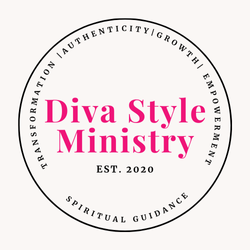Have you ever wondered if you’re more of an extrovert or an introvert? Maybe you’ve even been told you’re one or the other. But here’s the truth: neither personality type is inherently better than the other.
Both introverts and extroverts bring unique strengths to the table, and both come with their own set of challenges. In today’s fast-paced, interconnected world, the ideal balance is found in embracing the strengths of both personality types to lead a successful and fulfilling life.
For today’s post, let’s take a deeper look into the extrovert’s world. If you’re someone who thrives in social situations, finds energy from being around people, and enjoys being the center of attention, you may be an extrovert.
But being extroverted isn’t all about living in the spotlight—this personality type has advantages and disadvantages. Understanding these can help you navigate your personal and professional life with greater awareness and balance.
Let’s take a closer look at what makes extroverts shine, as well as the areas where they may need to be mindful.
The Advantages of Being an Extrovert
1. Quicker to Advance in Life
Extroverts often move up the ladder more quickly—both in their careers and personal relationships. Why? Because extroverts naturally attract attention. In the professional world, they stand out in meetings, network effortlessly, and are more likely to take risks that decision-makers notice. In their personal lives, extroverts actively seek connections, making finding and developing relationships easier. This drive to be seen and heard can lead to faster career advancement and more dynamic personal relationships.
If you’re an extrovert, your natural charisma is a gift that helps you seize opportunities. But remember, success is not just about being in the spotlight—it’s also about building meaningful relationships and working toward goals with purpose.
2. A Socially Active Lifestyle
Extroverts thrive on interaction. Being around people, attending events, and staying active in social circles keeps their energy high. Extroverts are often at the forefront of the latest trends, whether it’s fashion, social media, or industry news. They have a knack for connecting with influential people and seem to always know what’s happening.
This social fluency means extroverts are rarely bored, but it also means they are at their best when life is full of interaction. If you’re an extrovert, you may feel restless during idle moments. Embrace your love for social activity, but also practice finding joy in quiet moments of self-reflection to balance out your busy life.
3. Comfort in Crowds and Public Spaces
Crowds don’t often intimidate extroverts—in fact, most of the time, they feel at home in them. Whether it’s navigating a busy networking event or a large family gathering, extroverts move seamlessly through groups, effortlessly engaging with others and absorbing energy from the atmosphere.
This ability to handle crowds with ease makes extroverts great at both work functions and social gatherings. They have a natural curiosity about others, and their confidence allows them to strike up conversations with strangers and make meaningful connections on the spot.
4. Excellent Networking Skills
Given their love for socializing, extroverts excel at networking. They have an enviable ability to build and maintain a vast network of contacts, which often serves them well both personally and professionally. Need a great referral for a lawyer, doctor, or financial advisor? Chances are, the extrovert in the room has someone in their contacts who can help.
Extroverts’ natural inclination to connect with others means they are well-equipped to handle the “who you know” aspect of success. This social capital helps them access opportunities that may not be available to others who are less inclined to seek such connections.
5. Enthusiastic and Engaging in Social Settings
Extroverts are often the life of the party. They bring enthusiasm, energy, and a sense of fun to social settings, which draws people to them. This can be a significant advantage in both personal and professional settings—people enjoy being around those who make them feel energized and engaged.
The Disadvantages of Being an Extrovert
While there are many advantages to being an extrovert, it’s important to acknowledge the challenges that come with it. Self-awareness is key to navigating these potential pitfalls.
1. Reliance on Positive Reinforcement
Extroverts often thrive on external validation. When they get positive feedback—whether it’s compliments, social media likes, or approval from peers—they feel energized and at their best. However, the flip side is that they can become overly reliant on this validation. Without it, they may feel like they’ve fallen short, leading to self-doubt, criticism, or even feelings of depression.
If you’re an extrovert, practice self-love and affirmation outside of external validation. Building your inner sense of self-worth will help you feel confident, even when the external praise isn’t flowing in.
2. Pressure to Perform
Extroverts often feel a constant pressure to be “on stage.” Whether it’s maintaining a high energy level at social events or meeting high expectations in the workplace, the pressure to “perform” can be exhausting. This drive to meet goals is a double-edged sword—it can propel extroverts to success, but when they fall short of their own expectations, the disappointment can be devastating.
Learning to balance your need to perform with self-compassion can help alleviate the stress of always being “on.” Remember, you don’t always have to be the life of the party to be valuable.
3. Highly Competitive Nature
The competitive nature of extroverts can drive them to achieve great things, but it can also lead to feelings of inadequacy if they feel overshadowed by another extrovert. This constant push to be the biggest and best in every room can create unnecessary tension and competition, especially when surrounded by other extroverts.
By shifting the focus from competition to collaboration, extroverts can build stronger relationships and reduce the pressure of always having to outshine others.
4. Impulsiveness and Acting Without Thinking
Extroverts tend to be action-oriented, which can be a great trait—until it leads to impulsive decisions. They may act on instinct rather than weighing the pros and cons, which can sometimes result in unfavorable outcomes. Acting in the heat of the moment without considering consequences is a common challenge for extroverts.
If you’re an extrovert, cultivating mindfulness and taking a moment to reflect before acting can help mitigate impulsive behavior. Sometimes, slowing down allows you to make more thoughtful and beneficial decisions.
5. Coming Off as Overbearing or Annoying
While extroverts often bring joy and energy to a room, they can sometimes be perceived as overbearing or attention-seeking, especially by more introverted individuals. Their high energy can come off as overwhelming to some, and if they dominate conversations or social settings, they may unintentionally alienate others.
Awareness of how your energy affects those around you can help you navigate social situations with more sensitivity. Practicing active listening and giving others space to contribute can go a long way in building deeper, more meaningful connections.
Finding Balance: The Power of Being Both Extroverted and Introverted
Here’s the ultimate truth: the most unstoppable force is someone who has cultivated the strengths of both extroversion and introversion. When you can navigate social situations with ease while also having the introspective depth to work well independently, you become a well-rounded individual capable of excelling in any environment.
Strive for balance. Use your extroverted energy to build relationships, take risks, and pursue goals. But also embrace moments of solitude, reflection, and inner growth. The combination of both allows for a fulfilling and empowered life, where you thrive both personally and professionally.





